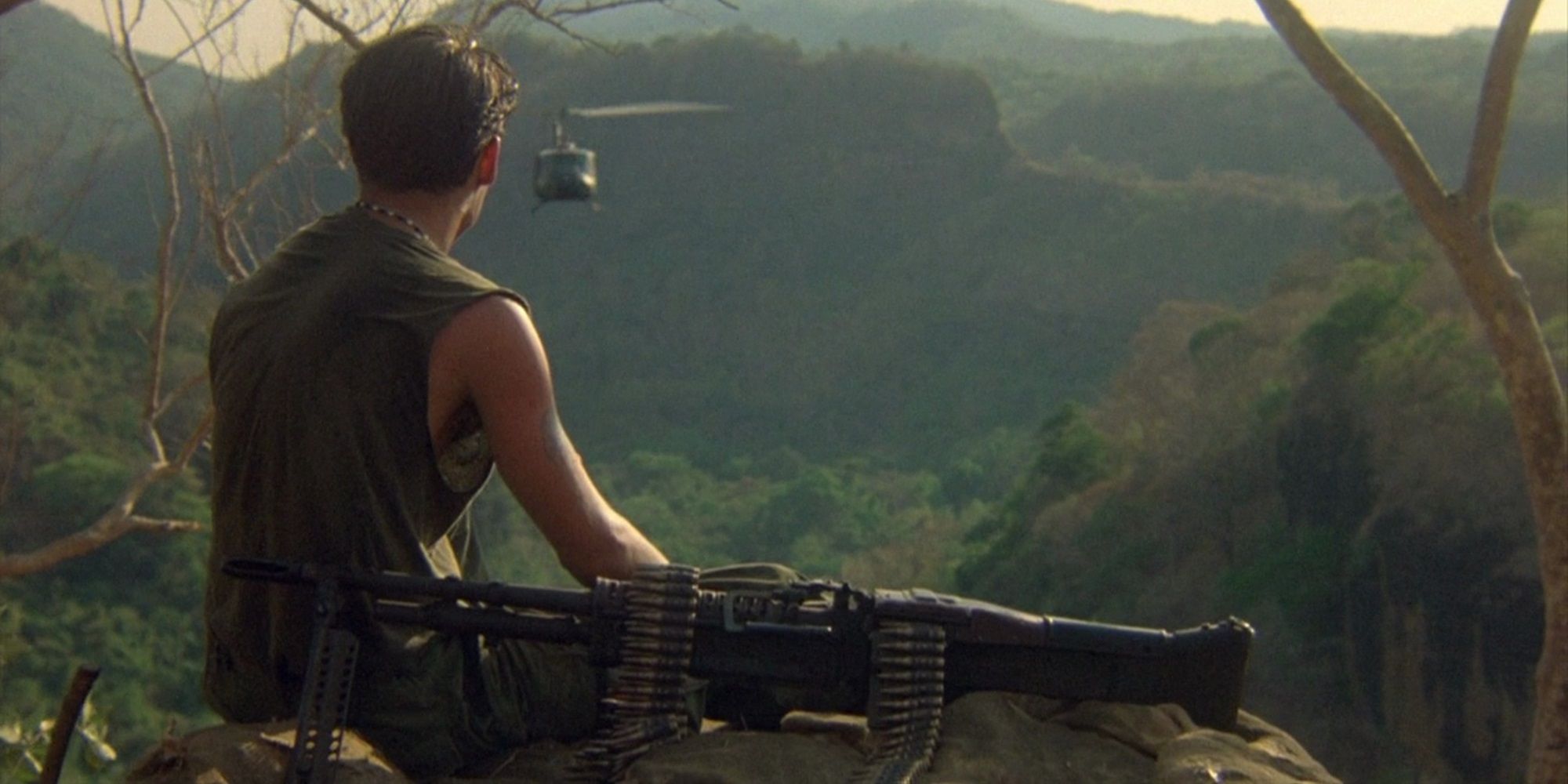
Platoon's Big Battle: The Real Story Behind the Inaccuracies

An in-depth analysis of the historical accuracy and creative liberties taken in the iconic film Platoon, shedding light on the real events and the filmmaker's approach to storytelling.
Uncovering the Inaccuracies
Platoon, the Oscar-winning Vietnam War movie directed by Oliver Stone, has been a cinematic masterpiece that portrays the harrowing experiences of soldiers during the conflict. However, a recent analysis by military historian Bill Allison has shed light on some inaccuracies in the film, particularly in the depiction of the attack on Fire Support Base Burt in 1968.
A soldier watches a helicopter go by in Platoon
The historian's scrutiny revealed that while certain aspects of the film were praised for their accuracy, there were notable exaggerations and discrepancies in the portrayal of the historical events. Allison's analysis delves into the sequence of events and highlights the discrepancies, offering a critical perspective on the film's real-life accuracy.
In one particular sequence, the attack on Fire Support Base Burt is scrutinized for its deviations from the actual battle. The historian points out the discrepancies in the depiction of the bunkers, the command bunker, and the overall organization and defense of the base. The analysis culminates in a score of 6 out of 10 for the sequence, indicating its departure from the actual battle.
The Filmmaker's Perspective
As Allison's analysis brings the inaccuracies to light, it prompts a deeper exploration into the filmmaker's approach to storytelling. Oliver Stone, a veteran himself, drew from his lived experiences as a soldier during the Vietnam War to craft the narrative of Platoon. The film, based on Stone's personal encounters with the conflict, reflects the horrors and challenges faced by soldiers during the war.
The discrepancies highlighted by Allison are not attributed to oversights on Stone's part but are viewed as deliberate attempts to enhance the film's storytelling. Stone's endeavor to create a powerful and emotionally resonant narrative is evident in the portrayal of uncertainty, fear, chaos, and confusion experienced by soldiers during the attack on Fire Support Base Burt.
Platoon, marketed as 'the first real movie about Vietnam', aimed to provide audiences with a visceral and authentic portrayal of the realities of war. The film's success in eliciting an emotional response and depicting the soldier's state of mind during the conflict underscores the effectiveness of Stone's approach, despite the creative liberties taken to enhance the narrative.
Legacy and Impact
Despite the inaccuracies and creative liberties taken in Platoon, the film has left an indelible mark on cinematic history. Widely praised as one of the best Vietnam War movies ever made, Platoon garnered critical acclaim and commercial success. Made on a modest budget of $6 million, the film achieved remarkable box office success, grossing $138 million and solidifying its position as a cinematic triumph.
The enduring legacy of Platoon is attributed to its ability to authentically capture the experiences of soldiers and evoke a powerful emotional response from audiences. While the film may take creative liberties with historical details, its impact in portraying the soldier's state of mind during the conflict has resonated with viewers and critics alike.
Today, Platoon continues to be revered as a distressing and highly effective portrayal of war, standing the test of time and retaining its status as a cinematic masterpiece. Its availability for streaming ensures that future audiences can experience the raw intensity and emotional depth of the film, further cementing its significance in the realm of war cinema.









